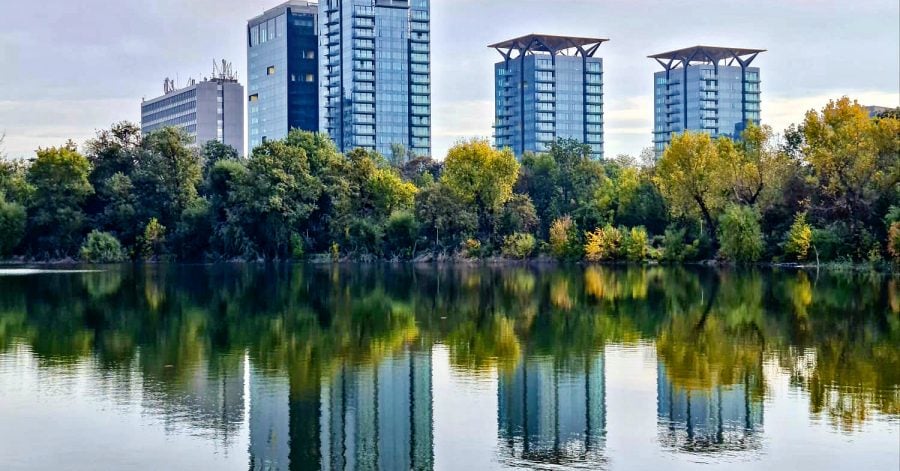For a few short months, the real estate sector has quickly had to push most of their client communication online and switch to virtual real estate tours to adjust to the situation.
According to a 2020 Deloitte survey, less than 100 out of 200 commercial real estate senior executives believe that digital tenant experience is a core competence of their company, while only 41% of them stating that their company has put efforts to introduce technological tools and innovations to the work process. A digital strategy aimed at providing the best customer experience has become one of the most important factors determining the success of real estate owners, along with data collection and analysis. How has COVID-19 changed the game for Southeastern European (SEE) proptech?
Digital showcasing and leasing in the ecosystem
3D virtual staging, location features, and availability checks are not something that we have not heard about, yet the mass implementation of such tools is only entering the Balkan region now. The most recent example of a proptech startup shaping the outlook of modern real estate businesses is Bright Spaces – a Bucharest-based startup whose interactive solution features virtual showcasing of real estate properties. In October, the company announced a joint venture with One United Properties – one of the largest real estate developers in Romania whose gross development value amounts to over €1.1B. The result of their partnership is an online showcasing and leasing platform for one of the real estate buildings developed by One United Properties – One Tower.
Specialized in virtual walks through office spaces, Bright Spaces can help potential customers filter the working spaces available in One Tower according to their preferences and tour them virtually through the key facilities offered by the building – restaurants, coffee shops, and schools. Apart from that, the platform also supports the shift to all the services that are part of the renting process, including booking a tour and preparation of personalized оffers. The platform prides itself on answering the needs of the real estate developers as well with its management system for office spaces, parking, and storage sites that can ease the communication between customers and real estate agents.
Local investments for international proptechs
The SEE ecosystem is not only an active builder of proptechs, but it also recognizes investment opportunities. Back in November 2020, Bulgarian VC LAUNCHub Ventures supported Giraffe360 – a Latvian proptech whose automated camera delivers high-quality images of estate sites and enables virtual tours through its LIDAR laser technology. The €3.8M round of the UK-based Giraffe360 was led by LAUNCHub and supported by the British Hoxton Ventures, whose portfolio already features 3 unicorns – Deliveroo, Babylon Health, and Darktrace.
Even more recently, the Bulgarian VC New Vision 3 (NV3) led the €1.3M round of another proptech – the Sofia-based FantasticStay – whose solution helps short-term property managers to automate their entire rental business from onboarding and marketing to the guest check-out through its Property Management System (PMS). The FantasticStay is now an official partner of Airbnb, Booking.com, and Expedia Group, and after it acquired one of its rivals – the vacation rental software Vreasy back in 2020, it became one of the key players in its industry.
2021: the new criteria for A-level offices
With the demand for leasing spaces likely to surge in 2021, there are several outstanding trends that might be worth considering. For one, the pandemic has already caused a switch in the way office spaces are valuated – now, things such as the flexibility a business can offer when it comes to virtual tours, as well as the range of online services offered have become more important than ever.
As noted by Deloitte, research shows that many businesses in need of rental spaces are likely to reduce their rental expenses by keeping offices for personal meetings with clients, as well as team activities, thus removing relocating individual work of employees to their homes. This matches the employee preference as well – according to a survey featuring 9100 tenants, more than 60% of the respondents would like to work remotely more often after the situation normalizes. As it looks, the importance of office location might as well be partly substituted by factors such as area population density and office occupation capacity, as people are currently impacted by social distancing rules. As a whole, 2021 is expected to bring a lot of disruption to the real estate industry as it might as well undermine the stable positions of premium properties that are unable to implement technology in the rental process. This, in turn, may lead to an increase in the size of the global proptech market which has, up to this point, managed to attract more than €14B of fundraising.








